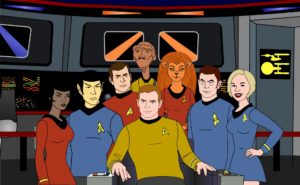Although the urge is strong to write a piece a la David Foster Wallace and title it, “2016: Consider the Dumpster Fire,” I’ll resist.
But also I can’t resist and here’s a picture of a dumpster fire.

Oh c’mon, Kristin, it wasn’t so bad. (Pause to picture me straining to find really good things about 2016.) If I’m doing my math right, which is rare, all of the good things were canceled out with two bad things. I’m not saying this to garner any pity. Quite the opposite. I’d be happy if you joined me in watching it all burn in the dumpster fire above. Ah, bonding over warm flames. 2017 is looking better already!
In 2016, I finished editing a book I completely rewrote, hoping the huge improvements could snag an agent. Instead, the manuscript was declined by seven agents. I decided perhaps it’s time to table that book for now and move on to other things. I wrote two short stories, one of which has been declined four times so far.
You know, I don’t know if you’ve heard, but sometimes this writing thing is hard. And I have never felt that more deeply than this year. And I know what I’m supposed to do. I’m supposed to take a good 15 minutes to feel sorry for myself, then get right back on that horse, nose to the grindstone, ass in seat.
Part of me thinks that’s a fine approach. But the other part of me thinks that’s just more of the same.
If you’ve started on the same crazy choice of careers, you know the one thing there is no shortage of: writing advice. Everyone from your aunt Carol to Stephen King has something to tell you about how to do this thing. The right way, the wrong way. Write, write, write! Write when you have something to say. Write your first three books then throw them away. Don’t let any time go to waste, be deliberate. All of it’s well intentioned. All of it has at least some merit.
But the second part to the advice that they don’t tell you is: now reflect on who you are, and if that advice can be applied to how you are.
I wish I had a greater epiphany this year, but perhaps this is just one of those sleeper-epiphanies that I’ll be thankful for when I’m 80. I learned I have only a few truly great ideas, and I have hundreds of good ideas. And I just want to write the truly great ones.
That means advice I followed before does not apply. Like: write, write, write! Get those million words in! Any writing work counts!
Instead, it means: slow down. Fully develop the story. Allow myself to think on the idea for however long I need to. Don’t write a good book. Only write the great ones. No matter how long that may take.
That’s not everyone’s road. But that’s what 2016 taught me personally. I don’t want to get merely paid for doing what I love. I want to be damn proud of every word in every book. I want it to mean something. I want it to be more than entertainment.
But first, I just gotta get out of this dumpster fire.
See you all in 2017! It might be better! What did this dumpst… I mean 2016 teach you?

